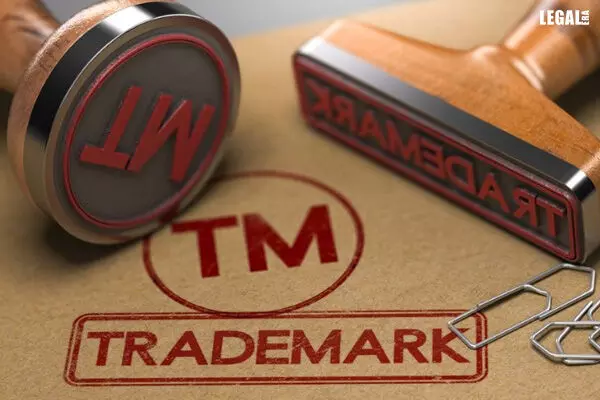- Home
- News
- Articles+
- Aerospace
- Artificial Intelligence
- Agriculture
- Alternate Dispute Resolution
- Arbitration & Mediation
- Banking and Finance
- Bankruptcy
- Book Review
- Bribery & Corruption
- Commercial Litigation
- Competition Law
- Conference Reports
- Consumer Products
- Contract
- Corporate Governance
- Corporate Law
- Covid-19
- Cryptocurrency
- Cybersecurity
- Data Protection
- Defence
- Digital Economy
- E-commerce
- Employment Law
- Energy and Natural Resources
- Entertainment and Sports Law
- Environmental Law
- Environmental, Social, and Governance
- Foreign Direct Investment
- Food and Beverage
- Gaming
- Health Care
- IBC Diaries
- In Focus
- Inclusion & Diversity
- Insurance Law
- Intellectual Property
- International Law
- IP & Tech Era
- Know the Law
- Labour Laws
- Law & Policy and Regulation
- Litigation
- Litigation Funding
- Manufacturing
- Mergers & Acquisitions
- NFTs
- Privacy
- Private Equity
- Project Finance
- Real Estate
- Risk and Compliance
- Student Corner
- Take On Board
- Tax
- Technology Media and Telecom
- Tributes
- Viewpoint
- Zoom In
- Law Firms
- In-House
- Rankings
- E-Magazine
- Legal Era TV
- Events
- Middle East
- Africa
- News
- Articles
- Aerospace
- Artificial Intelligence
- Agriculture
- Alternate Dispute Resolution
- Arbitration & Mediation
- Banking and Finance
- Bankruptcy
- Book Review
- Bribery & Corruption
- Commercial Litigation
- Competition Law
- Conference Reports
- Consumer Products
- Contract
- Corporate Governance
- Corporate Law
- Covid-19
- Cryptocurrency
- Cybersecurity
- Data Protection
- Defence
- Digital Economy
- E-commerce
- Employment Law
- Energy and Natural Resources
- Entertainment and Sports Law
- Environmental Law
- Environmental, Social, and Governance
- Foreign Direct Investment
- Food and Beverage
- Gaming
- Health Care
- IBC Diaries
- In Focus
- Inclusion & Diversity
- Insurance Law
- Intellectual Property
- International Law
- IP & Tech Era
- Know the Law
- Labour Laws
- Law & Policy and Regulation
- Litigation
- Litigation Funding
- Manufacturing
- Mergers & Acquisitions
- NFTs
- Privacy
- Private Equity
- Project Finance
- Real Estate
- Risk and Compliance
- Student Corner
- Take On Board
- Tax
- Technology Media and Telecom
- Tributes
- Viewpoint
- Zoom In
- Law Firms
- In-House
- Rankings
- E-Magazine
- Legal Era TV
- Events
- Middle East
- Africa
Calcutta High Court Rules Associate Managers Under Section 3(2) Of Trademarks Act Cannot Issue Quasi-Judicial Orders

Calcutta High Court Rules Associate Managers Under Section 3(2) Of Trademarks Act Cannot Issue Quasi-Judicial Orders
The Calcutta High Court has ruled that associate managers appointed under Section 3(2) of the Trademarks Act lack the authority to issue quasi-judicial orders. The court found that these managers, being contractual employees, are not empowered to perform such functions.
Justice Krishna Rao clarified that while the registrar dealing with trademark applications operates in a quasi-judicial capacity, the delegation of power under Section 3(2) of the Act is purely administrative. Therefore, associate managers, appointed under this provision, cannot pass quasi-judicial orders.
The bench reviewed applications under Section 91 of the Trademarks Act challenging orders issued by Associate Managers. Notably, one order was issued by an associate manager whose contract had expired before the order was made.
The appellants argued that only six officials in the Trademarks Registry were authorized to adjudicate trademark applications and issue reasoned orders. They presented evidence showing that the post of Associate Manager was not listed in the hierarchy of the Trademark Registry.
The Court considered Sections 3(1) and 3(2) of the Trademarks Act and found that officers appointed by the central government to assist the registrar should only perform actions authorized by the registrar. It noted a 2021 notification for "hearing officers" on a contractual basis, which included the Associate Managers in question, but emphasized that their roles were administrative, not quasi-judicial.
Ultimately, the Court held that the associate managers lacked the power to issue the challenged orders, quashing them and remanding the cases back to the Registrar of Trademarks for reconsideration by a competent officer.



